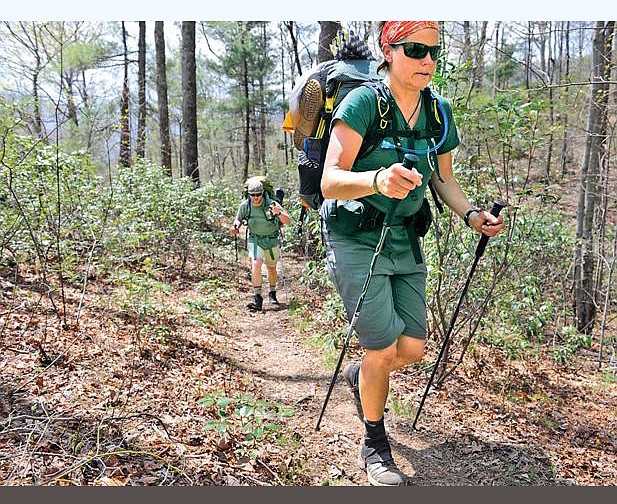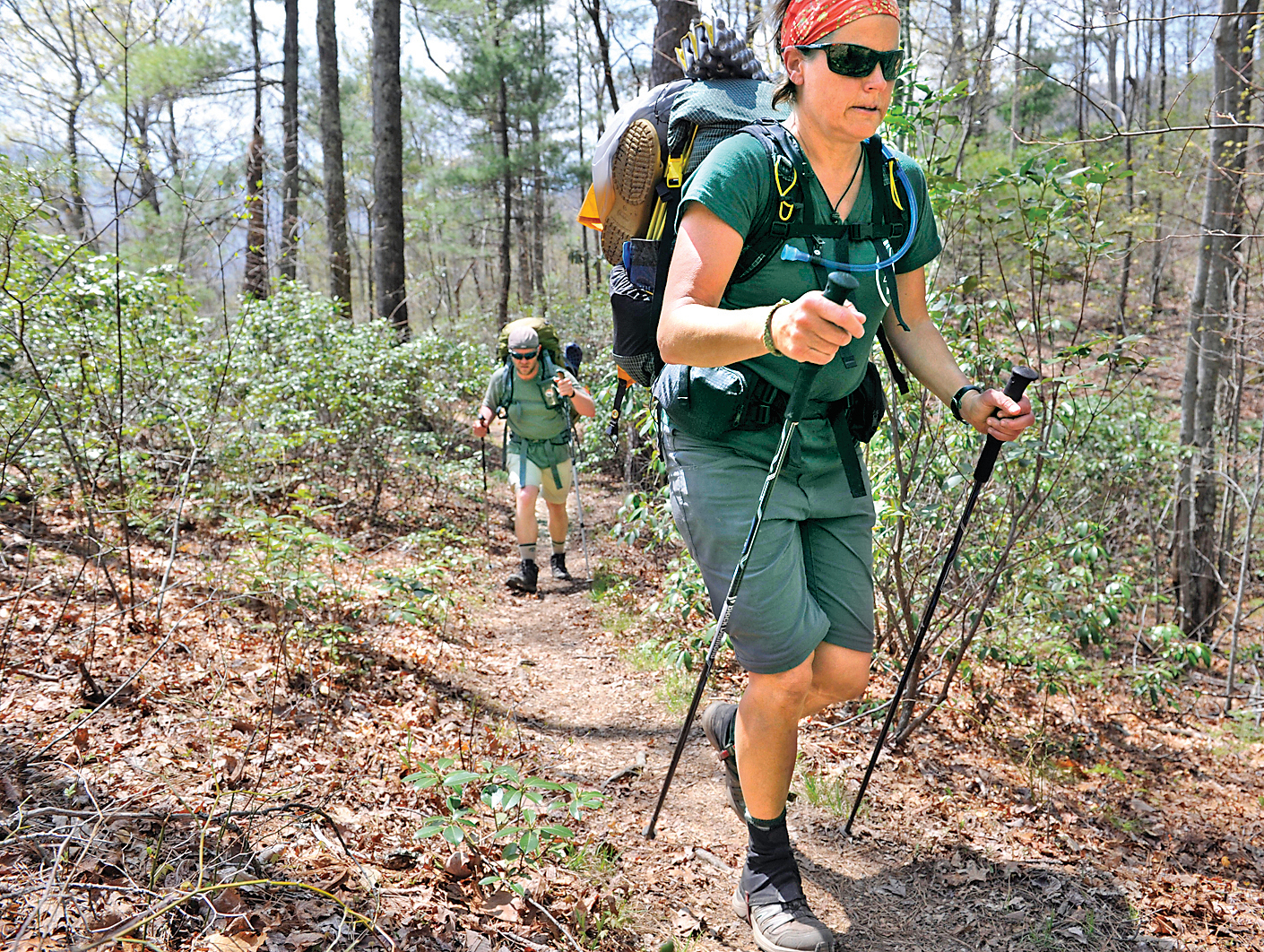TO LEARN MORE
For more information, visit www.appalachiantrail.org/events or www.walkoffthewar.com.
WATERVILLE, N.C. - They left Springer Mountain, Ga., March 17, and for the first two weeks, the weather was miserable in ways they never imagined.
During their first full day on the Appalachian Trail, they hiked into a severe thunderstorm that brought hail and tornado warnings. Nighttime temperatures dipped into the teens, and as they crossed the Georgia-North Carolina line, they encountered snow drifts 2 feet deep.
Weather was one thing; loud noises were another. A lightning strike close to their campsite was unnerving for some of the war veterans, as was the sound of gunshots and helicopters that could be heard from an Army Ranger training exercise near the Hawk Mountain trail shelter.
The weather has since improved for the 13 veterans of the wars in Iraq and Afghanistan as they completed the 72-mile section of the Appalachian Trail through the Great Smoky Mountains National Park. Last Tuesday they left the park at Davenport Gap more determined than ever to reach the northern terminus of the trail in Maine by their target date of Sept. 13.
The thru-hikers are taking part in a new program called "Walk Off The War" that provides military servicemen and women returning from tours of duty in the Middle East the opportunity to hike the trail - at 2,180 miles, the world's longest hiking-only footpath - as a means of alleviating the negative effects of war.
"Walk Off The War" provides the veterans full scholarships to cover their expenses. The program was launched this year by the Appalachian Trail Conservancy, Operation Military Embrace, the Military Family Lifestyle Charitable Foundation, the Veterans of Foreign Wars and the Appalachian Long Distance Hikers Association.
Everyone hikes at his own pace, and no one is required to complete the entire trail. The routine of daily exercise is in itself a balm, but participants also have the opportunity to engage with other hikers and experience the hospitality of the trail towns along the way. In the end, the goal of "Walk Off The War" is for the military veterans to return to civilian life better equipped for success than when they began their hike.
One of the backpackers at Davenport Gap last week was Kevin Reed (trail name "Grape Lightning"), a 42-year-old retired Marine who served in Kuwait.
"All you have to think about when you're hiking is putting one foot in front of the other," Reed said. "To us, that's a big deal because we're all so used to taking orders and not thinking for ourselves."
Sharon Smith - aka "Momma Goose" - is an Air Force veteran who served in Saudi Arabia during Desert Storm. Smith, who is 46, said she's hiking the Appalachian Trail to deal with issues she hasn't confronted in many years.
"I needed to share the camaraderie with my brothers and sisters again," she said.
Two of the driving forces behind the program are Marine Capts. Sean Gobin and Mark Silvers, who thru-hiked the Appalachian Trail last year after returning from Afghanistan. Gobin and Silvers used their hike to raise money to buy adapted vehicles for wounded veterans. They also co-founded Warrior Hike, a nonprofit that raises money for wounded veterans.
From Davenport Gap the group of veterans hiked two miles to the Pigeon River where the trail passes under Interstate 40. There they were met by members of VFW Post 7620 from Waynesville, N.C., who set up a tarp and served them a picnic - a pot roast salad made from bear meat was part of the menu - as the hikers cooled their tired feet in the river.
No one appreciated the swim more than Cooper, a 19-month-old yellow Labrador retriever that belongs to Jesse Bier, a retired Marine ordnance officer who served in Kuwait, Somalia and Iraq. Hiking with Bier, Cooper wears a canine backpack, and his paws are protected by booties.
Bier suffers from post-traumatic stress disorder that makes it extremely difficult for him to be in crowded places. Cooper is his service dog. Until Cooper came along, Bier spent six years on a couch, too afraid to leave the house. On the Appalachian Trail, he and Cooper can cover 17 miles a day.
"When I came home, there were just too many people," Bier said. "My anxiety builds up to fear, then anger. Out here, I've been able to talk to people, but I still get afraid. Sometimes, I just hike as hard as I can."

